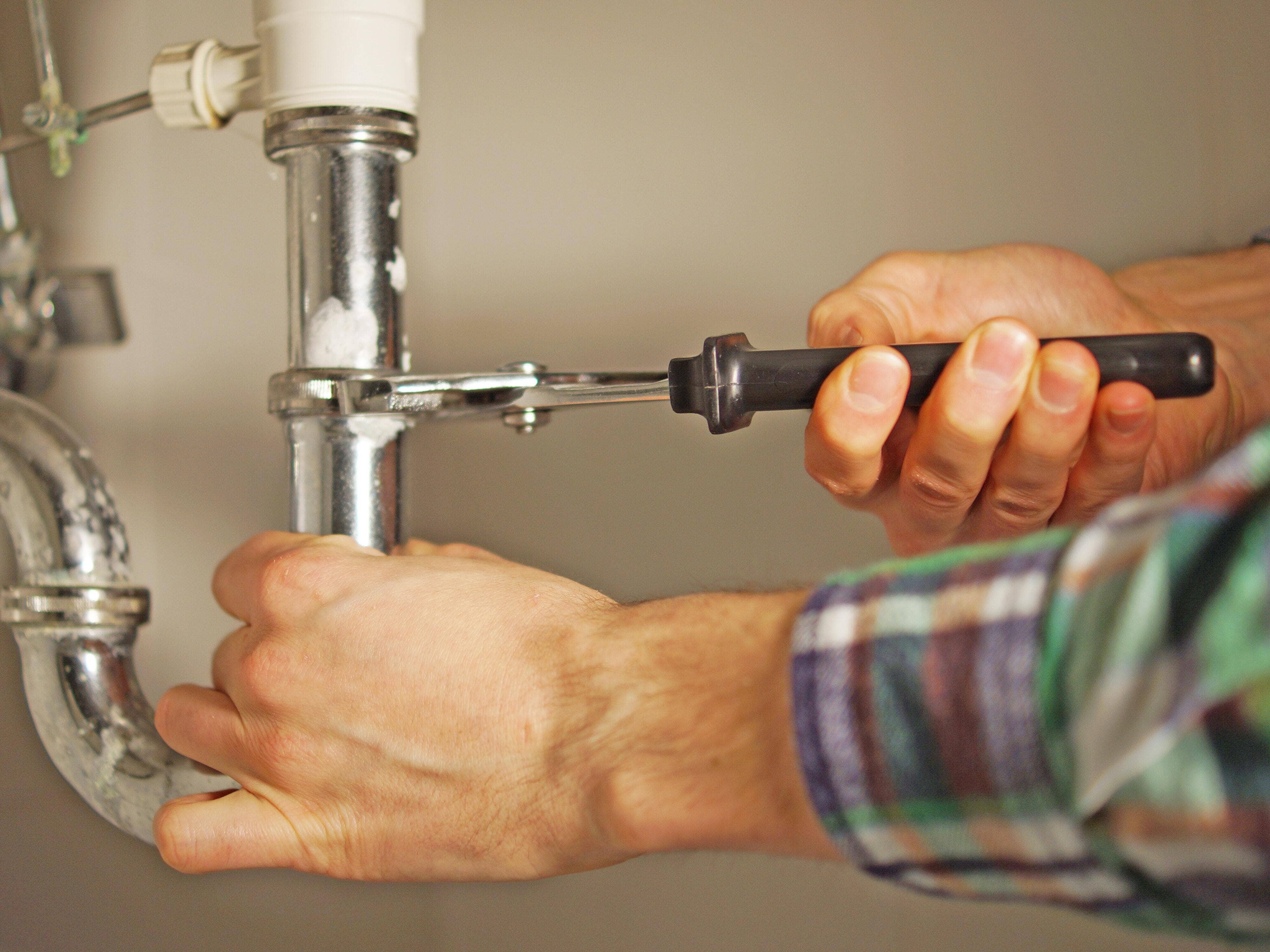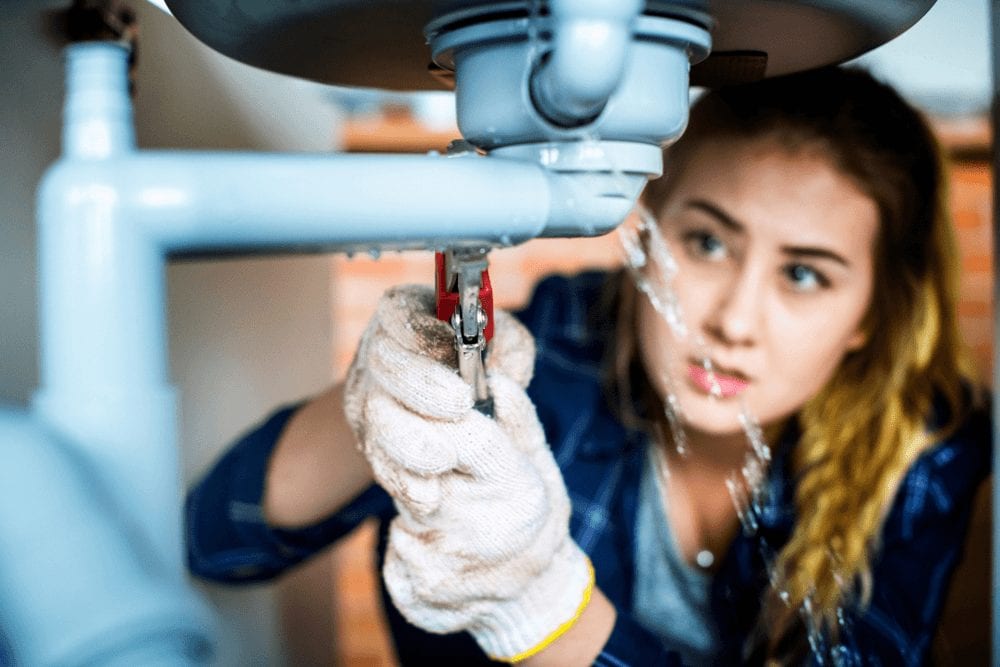Beware: Six Regular Habits Which Harm Your Plumbing Fixtures
Beware: Six Regular Habits Which Harm Your Plumbing Fixtures
Blog Article
Have you been hunting for facts about Leak Detection and Repair Without Destroying Your Home?

The key to durable devices, unsurprisingly, appertains maintenance. There's no hard and fast regulation that can guarantee your plumbing appliances a long wear, however you can protect against unneeded damage and repair services by preventing negative plumbing behaviors.
You should stop doing these 6 things else you'll keep calling your plumber over for minor faults.
Flushing everything
Yes, your toilet drainpipe brings about the sewers, however that does not imply you must unload just anything down the drain. Numerous 'flushable' products are in fact fantastic blockage beginners, as an example dental floss. Asides keeping apparent non-flushable materials like cables and plastics out of your bathroom, you ought to likewise prevent flushing cotton swab, menstrual products, wipes, daipers and condoms down the toilet drain.
Putting grease in the sink
We know correctly getting rid of grease after a hearty meal is a pain. Yet just pouring it down the drain can do lasting injury to your pipelines. "The fat and also oil can block your drainpipe terribly adequate to force you to call a plumber," clarifies Dawson. "Plumbing works best when it's well taken care of-- not abused with grease."
Making use of excessive drain cleaner
Utilizing a drainpipe cleaner greater than one or two times a month is an indication that something major is going on within your pipes. Currently, as opposed to dealing with the main problem, you opt for a quick fix; a carbonated drain cleaner. Rightfully, a drainpipe cleaner will deal with the obstruction, but at what price?
The chemicals in a drainpipe cleaner can quicken the deterioration of your pipes. Add that to whatever underlying issue is creating the clog as well as you might need to a serious problem on your hands.
If you experience a lot of blockages, call your emergency plumber as opposed to using a drain cleaner.
Not rinsing meals before packing them right into the dish washer
it's called a dish washer, yet throwing in meals, pots, as well as pans covered in big food bits can actually cause some serious damages to the home appliance, resulting in long-term problems down the line. "Homeowners might need to get their dishwasher fixed more frequently if they don't wash their recipes before loading, or at the very least get rid of larger food items," describes Audrey Monell, owner of Forrest Anderson Plumbing and also Air Conditioner in Glendale, Arizona. "Food that obtains stuck on meals causes the dishwashing machine to work harder, which can wear down components faster, leading to problems."
DIYing whatever
With plumbing, a stitch in time really does save 9. You can avoid a fullblown plumbing emergency by calling your plumber at the correct time.
You might have learnt a couple of plumbing hacks from your papa, but you should recognize where to draw the line as well as call a specialist. As an example, you may be able to repair a blockage on your own, yet you should not attempt to change a pipe. You could mismatch pipes or overtighten a screw, triggering more injury and also damage than you assumed. Calling a plumber is a secure and cost effective decision.
Not altering your dishwashing machine hose pipes
One easy means to ensure that you utilize your dish washer for many years is to change the pipe at least as soon as in five years. This additionally gets washing maker hoses.
Gradually, food fragments, soap as well as oil can form blockages within your pipelines. Changing them on schedule will certainly protect against any presure develop that can harm the inner operations of your dishwasher or washing device.
A strengthened steel intertwined pipe does a wonderful job of extending your machine's usage time.
No winter season precautions
Extreme climate condition are bad for your pipes, particularly if they're constructed from steel. You need to insulate your subjected pipes, as well as your water container, even if you have a hot water heater. You should also turn off your garden hose pipe valve as well as any other outside water channels. These channels are outlets for chilly; you pipes can start to freeze from outdoors if you do not.
Ways That Hard Water Affects Your Plumbing And Appliances
CLOGGED DRAINS
Calcium and magnesium from hard water go beyond the drain screen that you clean. Each time water passes through the drain screen, the minerals attach to the sides of the pipes and other hard water deposits. As you continue to use the drain, more of the minerals attach to these deposits, eventually clogging the drain. Most drain cleaners remove only a small amount of the minerals, so the drain continues to run slow and back up water in your sinks, tubs, and showers.
DECREASED WATER FLOW
Do you have a faucet that runs slow even when you increase the water flow at the valve? Hard water deposits not only affect how water runs out of your home but also how water is delivered to your faucets. When calcium, magnesium, and minerals build up in pipes, it slows the flow of water and also builds up pressure inside the pipes that causes a backflow of water.
CORROSION
Calcium and magnesium have properties that are destructive to certain types of metal, many of which are used for plumbing in older homes. The minerals slowly break down the metal in your pipes. This can cause leaks, breaks, and even discolored water. If the corrosive section of the pipe is not repaired and the hard water deposits removed, entire sections of your plumbing may disintegrate. You may end up replacing a large portion of your plumbing system. Corrosion can happen on any metal surface, not just your pipes. Calcium and magnesium can also cause corrosion on your faucets, drains, valves, appliances, and fixtures.
REDUCED WATER QUALITY
You rely on your plumbing system to deliver clean water for cooking, washing your clothes, bathing, and many other daily tasks. Hard water has small particles of minerals in it. The water is safe to drink, but it is not ideal for your appliances. The minerals interfere with how soaps and detergents work to remove dirt, food, oils, and other substances. As a result, you must use more cleaning products, and your appliances have to work harder to clean dishes and clothes.
BROKEN PIPES AND LEAKS
Broken pipes and leaks from hard water happen in two ways. First, hard water is corrosive to the materials that are used in older homes. Eventually, minerals eat through the pipe and create a small opening in the side of the pipe. The opening grows larger and larger until you have a major leak on your hands. Second, the mineral deposits inside the pipes prevent water from flowing through efficiently. If the water is pushed through the plumbing at the same volume, pressure builds up, and eventually, the pipes and connections fail.
ENERGY EFFICIENCY
Hard water and mineral deposits in your plumbing affect the energy efficiency of your appliances, even the older models that do not meet modern standards. When you find a white residue on your dishes or your clothes don’t feel clean, you may find yourself running the wash cycle a second time. This requires more energy use and raises your utility bills. Some newer high-efficiency models of dishwashers and washing machines have sensors that detect when items are clean. Hard water deposits on the dishes or clothes will trigger the sensors and cause the appliance to run longer.
Another way that hard water affects your budget is the investment you make in products for hard water deposits. Rather than spending your money on higher utility costs and household products, invest in a water softening system from Beyer Plumbing Co. to prevent the problems of hard water.
WEAR AND TEAR
Hard water deposits build up on the connections, drains, and jets in your washer or dishwasher that circulate the water and clean your clothes and dishes. As a result, water may collect inside your appliances, creating the ideal environment for corrosion, mold, and other damaging substances. The components break down sooner, and your appliances may not last as long as expected. In some cases, the lifetime of an appliance may be reduced by three or four years simply due to hard water deposits. Using soft water in your appliances ensures that you get the maximum return on your investment.
https://beyerplumbing.com/9-ways-that-hard-water-affects-your-plumbing-and-appliances/

Do you really like more info about Can Hard Water Ruin Your Appliances?? Give feedback directly below. We will be delighted to find out your ideas about this blog posting. In hopes that you visit us again before long. I beg you set aside a second to promote this article if you appreciated it. Thank-you for going through it.
Estimating Report this page